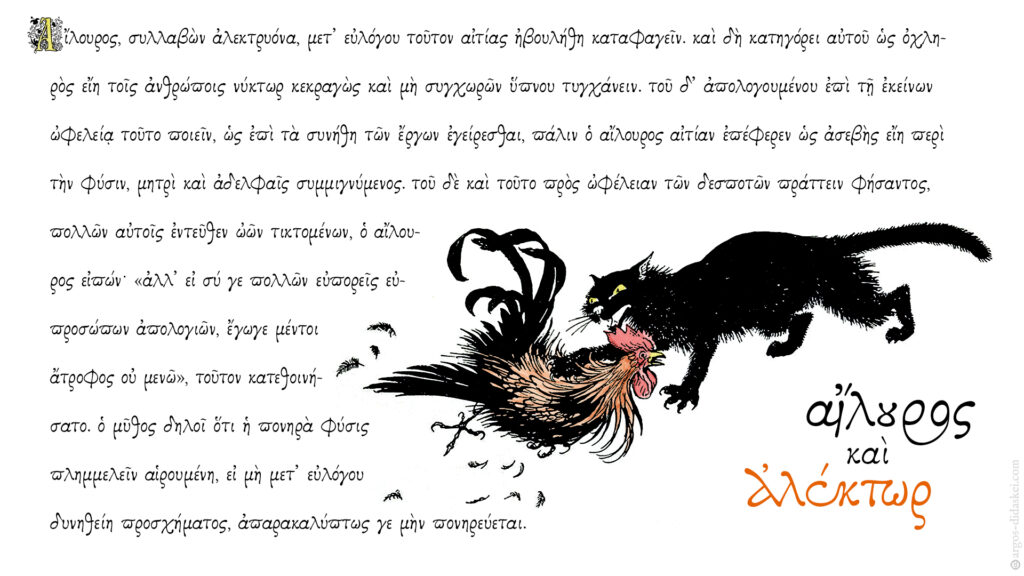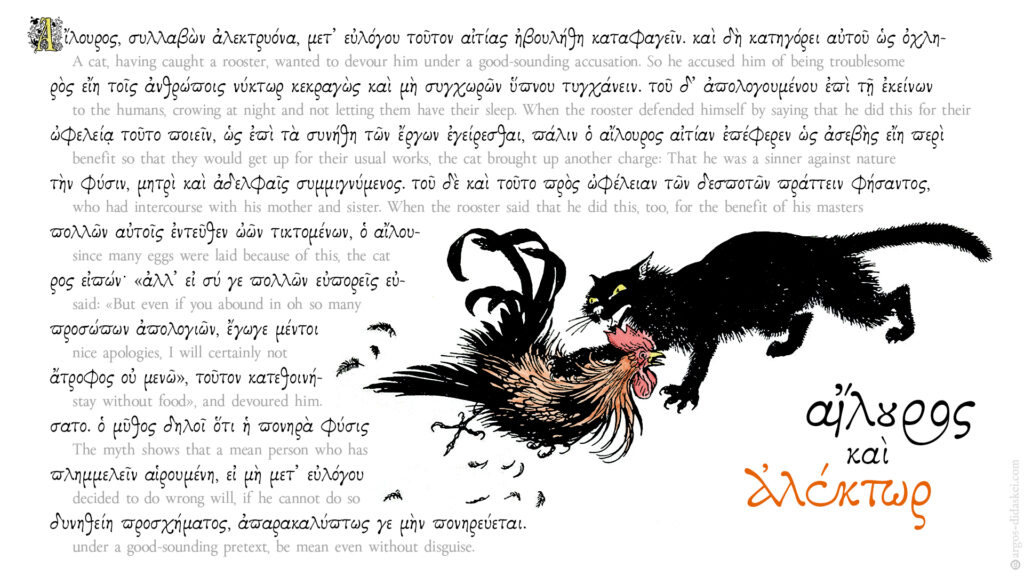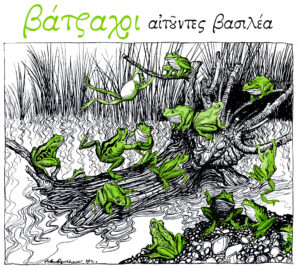ΑΙΛΟΥΡΟΣ ΚΑΙ ΑΛΕΚΤΩΡ
αἴλουρος, συλλαβὼν ἀλεκτρυόνα, μετ’ εὐλόγου τοῦτον αἰτίας ἠβουλήθη καταφαγεῖν. καὶ δὴ κατηγόρει αὐτοῦ ὡς ὀχληρὸς εἴη τοῖς ἀνθρώποις νύκτωρ κεκραγὼς καὶ μὴ συγχωρῶν ὕπνου τυγχάνειν.
τοῦ δ’ ἀπολογουμένου ἐπὶ τῇ ἐκείνων ὠφελείᾳ τοῦτο ποιεῖν, ὡς ἐπὶ τὰ συνήθη τῶν ἔργων ἐγείρεσθαι, πάλιν ὁ αἴλουρος αἰτίαν ἐπέφερεν ὡς ἀσεβὴς εἴη περὶ τὴν φύσιν, μητρὶ καὶ ἀδελφαῖς συμμιγνύμενος.
τοῦ δὲ καὶ τοῦτο πρὸς ὠφέλειαν τῶν δεσποτῶν πράττειν φήσαντος, πολλῶν αὐτοῖς ἐντεῦθεν ὠῶν τικτομένων, ὁ αἴλουρος εἰπών·
«ἀλλ’ εἰ σύ γε πολλῶν εὐπορεῖς εὐπροσώπων ἀπολογιῶν, ἔγωγε μέντοι ἄτροφος οὐ μενῶ»,
τοῦτον κατεθοινήσατο.
ὁ μῦθος δηλοῖ ὅτι ἡ πονηρὰ φύσις πλημμελεῖν αἱρουμένη, εἰ μὴ μετ’ εὐλόγου δυνηθείη προσχήματος, ἀπαρακαλύπτως γε μὴν πονηρεύεται.
A cat, having caught a rooster, wanted to devour him under a good-sounding accusation. So he accused him of being troublesome to the humans, crowing at night and not letting them have their sleep.
When the rooster defended himself by saying that he did this for their benefit so that they would get up for their usual works, the cat brought up another charge: That he was a sinner against nature who had intercourse with his mother and sister.
When the rooster said that he did this, too, for the benefit of his masters since many eggs were laid because of this, the cat said:
«But even if you abound in oh so many nice apologies, I will certainly not stay without food»,
and devoured him.
The myth shows that a mean person who has decided to do wrong will, if he cannot do so under a good-sounding pretext, be mean even without disguise.
(Translation: Jenny Teichmann)






